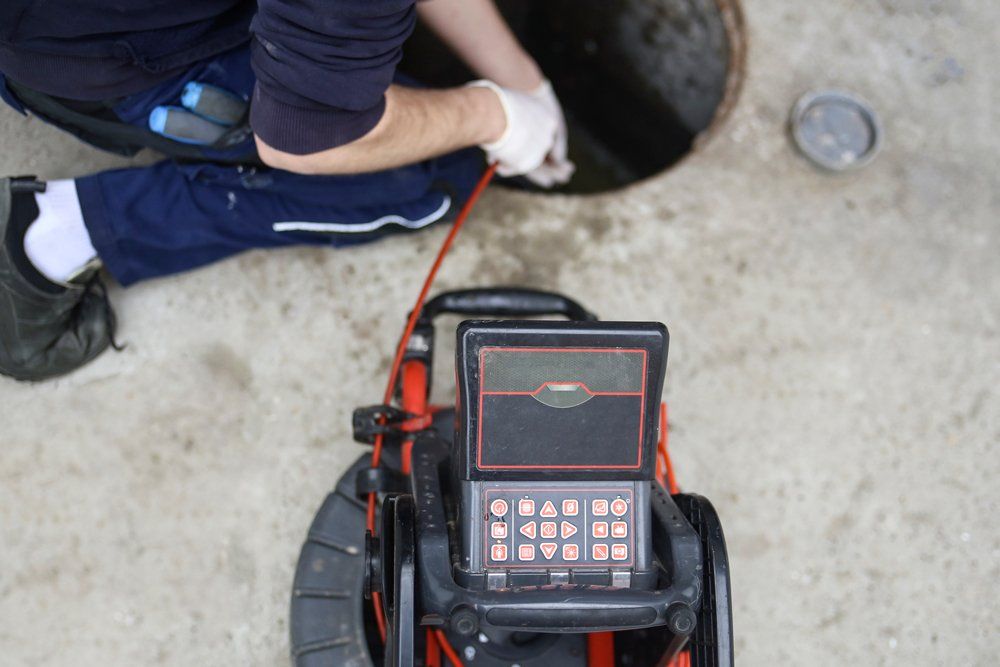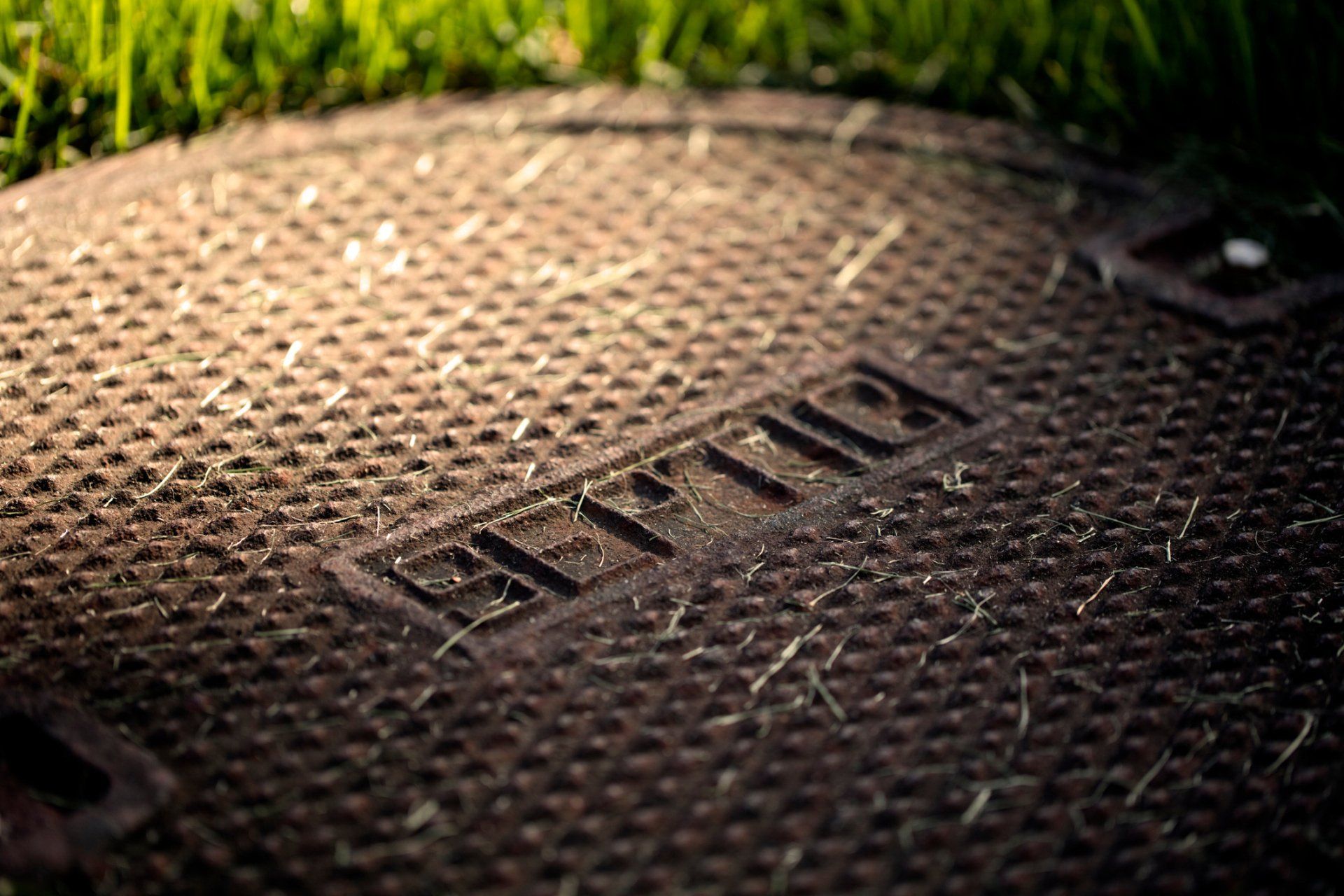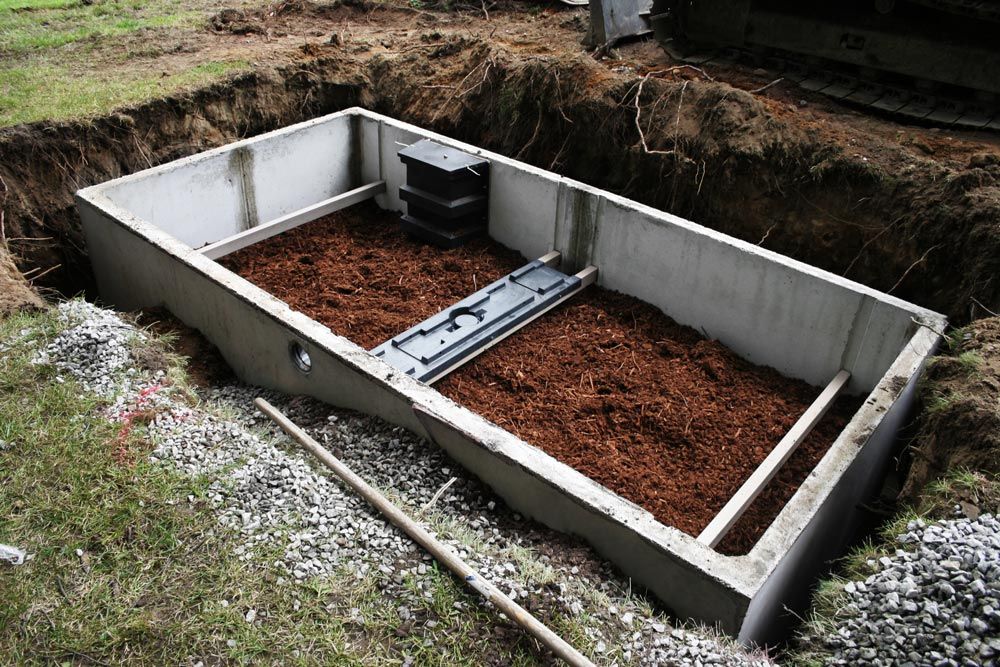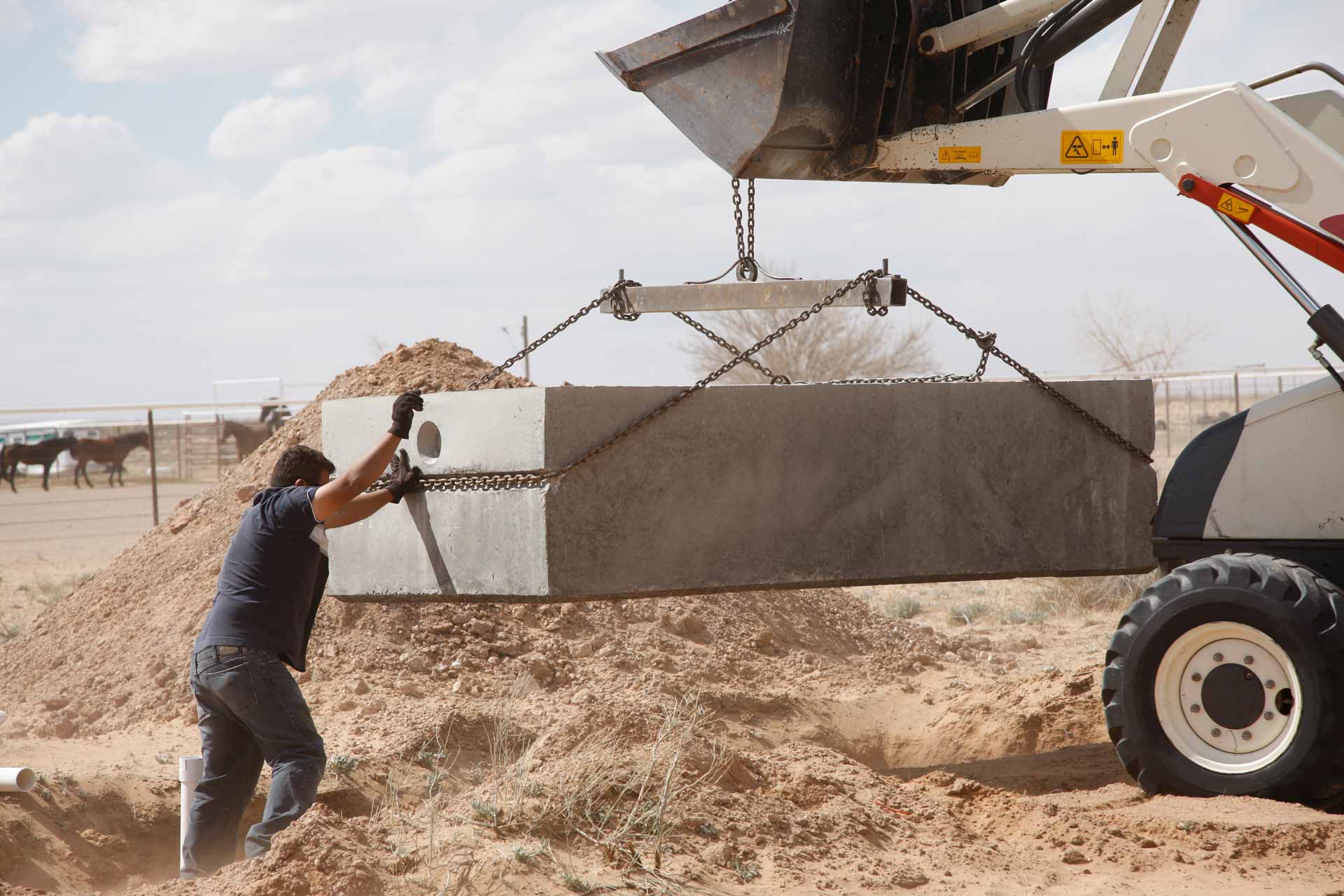Factors Determining the Operation and Lifespan of a Septic Drain Field
- By Admin
- •
- 18 May, 2022
- •
The septic drain field is a critical part of the system. Septic field failure exposes the environment to contamination and means you cannot use your drain system. All septic system parts, including drain fields, eventually fail, but some fail sooner than others. Read on to learn about some factors that determine how long your septic drain field will last.
Drain Field Design
The septic drain field design should accept and dispose of all the waste it receives from the house. The design factors that matter include:
The drain field will struggle to handle the effluent without such design considerations and possibly suffer premature failure.
Soil Conditions
Soil conditions on and around the drain field matter. The best soils comprise sand, clay, and silt with granular particles. Such soils allow effluent from the septic tank to percolate into the ground at a controlled rate — neither too fast nor too slow. Controlled absorption means the effluent does not saturate the drain field. Otherwise, the drain field won't handle all the effluent it receives.
Surrounding Environment
The surrounding environment affects the drain field's ability to handle its waste in multiple ways. Environmental factors of concern include the following.
The Slope of the Land
The topography and slope of the surrounding land determine how floodwater or surface runoffs flow. Land that slopes towards the drain field encourage drain field flooding with water and silt. Both things interfere with the drain field's ability to absorb wastes.
Nearby Water Bodies
Nearby water bodies, such as rivers and dams, can overspill and flood the drain field during some seasons. Again, the reduced absorption rate is the effect if that happens.
Nearby Plants
The presence and type of plants near the drain field determine whether their roots can reach and affect the drain field. Invasive roots will seek water and nutrients from the drain field. The roots can clog and damage the septic drain lines.
Septic System Use
A septic system works best and for long if it:
In such cases, the waste might overwhelm and cause the drain field to fail.
Nature of Effluent
A septic drain field treats organic waste, which should mostly be human waste. Non-organic waste will pass through the system without decomposition. Some non-organic wastes can even kill the bacteria that decompose wastes in the system. Drain field failure ensues if untreated wastes end up in the drain field.
Examples of dangerous effluent include chemical wastes, such as paint, cleaning liquids, and fuel. Never send such things into your septic system.
Care and Preservation
Lastly, good maintenance practices will prolong the septic drain field's lifespan. For example, you should pump the septic tank regularly and avoid drain field compaction. Otherwise, the drain field won't handle its waste.
Pete's Outflow Technicians is a professional septic company with over 60 years of experience in the industry. Contact us to design and install your septic system for maximum durability. We can also maintain your septic system to enhance its efficiency and prolong its life.
Drain Field Design
The septic drain field design should accept and dispose of all the waste it receives from the house. The design factors that matter include:
- The drain field size that ensures effluent from the house doesn't overwhelm it
- The gravel particles are the right size and amount for effective waste absorption
- The type of drain field can handle the effluent; for example, a mound system is necessary for areas with shallow soils, rocks, or high water tables
The drain field will struggle to handle the effluent without such design considerations and possibly suffer premature failure.
Soil Conditions
Soil conditions on and around the drain field matter. The best soils comprise sand, clay, and silt with granular particles. Such soils allow effluent from the septic tank to percolate into the ground at a controlled rate — neither too fast nor too slow. Controlled absorption means the effluent does not saturate the drain field. Otherwise, the drain field won't handle all the effluent it receives.
Surrounding Environment
The surrounding environment affects the drain field's ability to handle its waste in multiple ways. Environmental factors of concern include the following.
The Slope of the Land
The topography and slope of the surrounding land determine how floodwater or surface runoffs flow. Land that slopes towards the drain field encourage drain field flooding with water and silt. Both things interfere with the drain field's ability to absorb wastes.
Nearby Water Bodies
Nearby water bodies, such as rivers and dams, can overspill and flood the drain field during some seasons. Again, the reduced absorption rate is the effect if that happens.
Nearby Plants
The presence and type of plants near the drain field determine whether their roots can reach and affect the drain field. Invasive roots will seek water and nutrients from the drain field. The roots can clog and damage the septic drain lines.
Septic System Use
A septic system works best and for long if it:
- Receives waste volumes it can handle
- Receives effluent at different times of the day
- You send more waste into the system than the contractor designed it to handle
- You dump a lot of water into the septic system at once
In such cases, the waste might overwhelm and cause the drain field to fail.
Nature of Effluent
A septic drain field treats organic waste, which should mostly be human waste. Non-organic waste will pass through the system without decomposition. Some non-organic wastes can even kill the bacteria that decompose wastes in the system. Drain field failure ensues if untreated wastes end up in the drain field.
Examples of dangerous effluent include chemical wastes, such as paint, cleaning liquids, and fuel. Never send such things into your septic system.
Care and Preservation
Lastly, good maintenance practices will prolong the septic drain field's lifespan. For example, you should pump the septic tank regularly and avoid drain field compaction. Otherwise, the drain field won't handle its waste.
Pete's Outflow Technicians is a professional septic company with over 60 years of experience in the industry. Contact us to design and install your septic system for maximum durability. We can also maintain your septic system to enhance its efficiency and prolong its life.
If the septic system doesn't function properly, it could start to generate bad smells. Learn about common reasons why septic systems produce bad smells.
The roots of trees can penetrate your septic system and impede system performance. Learn a few steps to prevent tree and shrub roots from invading your tank.
Whether constructing a new home or replacing an old septic system, homeowners must decide on the type to install. See a few types of septic tanks.
Pumping your septic tank should be part of your home maintenance routine. How often you should pump your tank? Discover a few factors that determine that.
Landlords should proactively maintain their septic tanks for health, safety, and compliance reasons. Discover essential maintenance tips.
Bleach is a popular detergent for killing germs, but how does it affect your septic system? Read on to learn more about this common cleaner.









